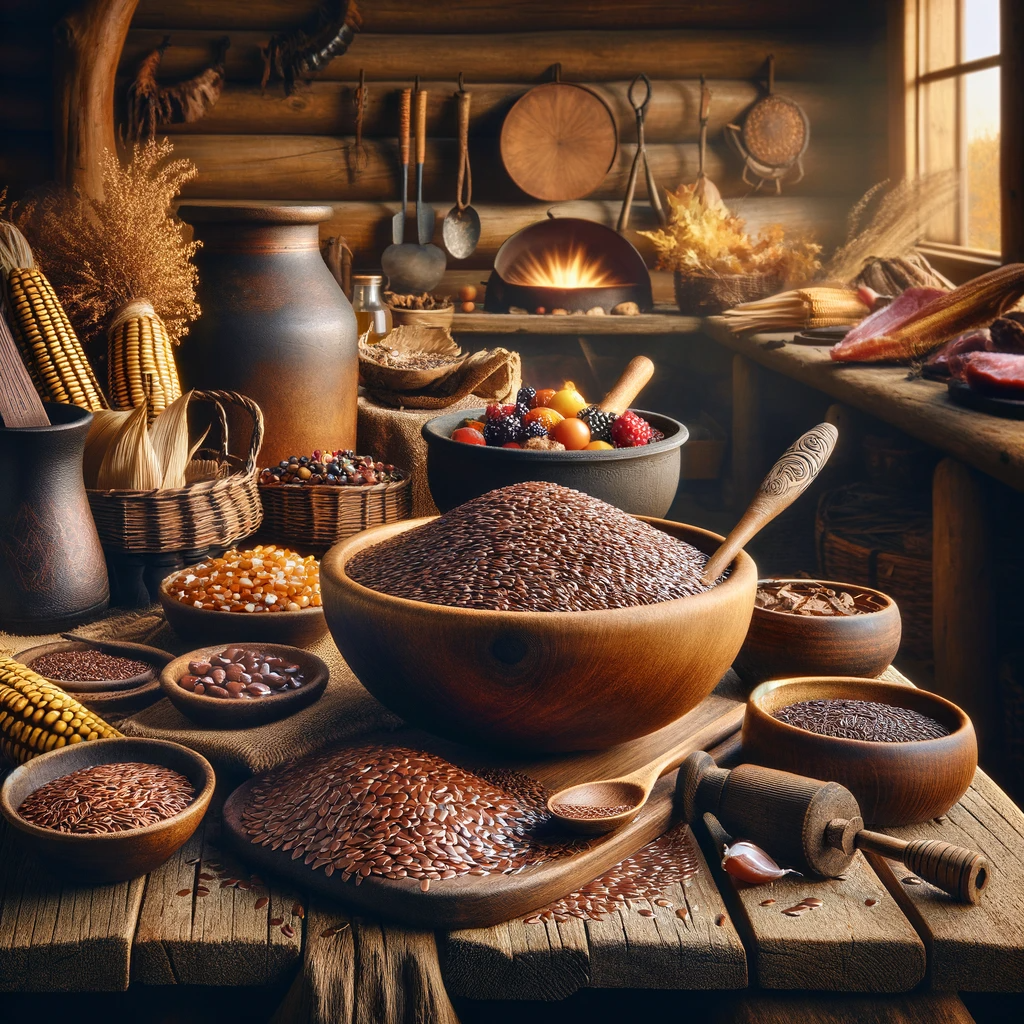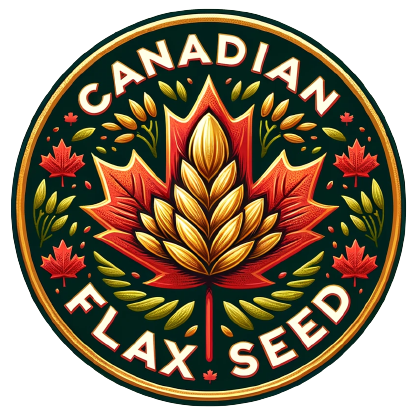Unlocking the Secrets of Flaxseed: The Superfood of Native Canadian Cuisine
Flaxseeds as a Staple in Native Canadian Cuisine
Flaxseeds, often referred to as linseeds, have long been a staple in Native Canadian cuisine, weaving a rich tapestry of nutritional and cultural significance. This small, brown, or golden seed, derived from the flax plant (Linum usitatissimum L.), is not just a food item but a symbol of the deep-rooted agricultural and medicinal practices of the native communities.

Flax Production: A Canadian Legacy
Canada, particularly Saskatchewan, stands as a global leader in flax production. The flax council of Canada has played a pivotal role in promoting the cultivation and use of flax in various industries. Historically, early flax cultivation was not just for food but also for making linen and linoleum, showcasing the versatility of this crop. Modern cultivated flax, primarily grown for its seeds and oil, has transformed the Canadian flax industry, making it a key player in the global food and fiber market.
Nutritional Powerhouse: The Essence of Flaxseed
Flaxseed’s nutritional profile is impressive, boasting high levels of dietary fiber, both soluble and insoluble, which aid in digestion and maintaining a healthy gut. It is a rich source of alpha-linolenic acid, a type of omega-3 fatty acid, crucial for heart health and reducing inflammation. The seeds also contain lignans, which have antioxidant and estrogen properties, playing a significant role in preventing certain cancers.
Flaxseed Oil and Linseed Meal: Culinary and Medicinal Marvels
Flaxseed oil, known for its high polyunsaturated fatty acids content, is a popular dietary supplement. Linseed oil, extracted from flaxseeds, is not just used in food but also in wood finishing, due to its quick-drying properties. Linseed meal, the byproduct of oil extraction, is a high-protein feed for livestock. Flaxseed’s mucilage is known for its medicinal properties, primarily as a laxative and for skin health.
Incorporating Flaxseed in Daily Diet
The versatility of flaxseed in cuisine is remarkable. Ground flaxseed can be added to smoothies, yogurts, and baked goods, increasing their nutritional value. Flaxseed oil is a healthy addition to salads and dishes, although it’s not suitable for high-heat cooking. Flaxseed, with its nutty flavor, can be a nutritious substitute for eggs in vegan recipes.
Sustainability and Environmental Impact
Cultivating flax has a lower environmental footprint compared to other crops, making it a sustainable choice. The flax plant is resilient, requiring less water and pesticides, which aligns with the increasing global focus on sustainable agriculture.
Cultural Significance and Historical Use
Flaxseed has been a part of Native Canadian diets for centuries. Its use was not limited to food; it played a significant role in their medicinal practices. The flax plant’s fiber was used to make fishing nets, ropes, and linen, highlighting its importance in everyday life.
Research and Development: The Future of Flax
Research in food science and technology continues to explore the potential of flaxseed. Studies on the effect of dietary flaxseed and its supplementation show promising results in managing cholesterol levels, diabetes, and even certain cancers. The flax industry is continuously evolving, with innovations in flaxseed processing and utilization expanding its applications in various sectors.
Conclusion: Flaxseed, A Gift of Nature
Flaxseed, a tiny seed with a giant nutritional punch, is a testament to the rich agricultural heritage and wisdom of Native Canadians. Its journey from an ancient crop to a modern superfood reflects a blend of tradition and innovation. Incorporating flaxseed into our diet is not just a healthy choice but a step towards appreciating and preserving a vital part of Canada’s cultural and agricultural legacy.
